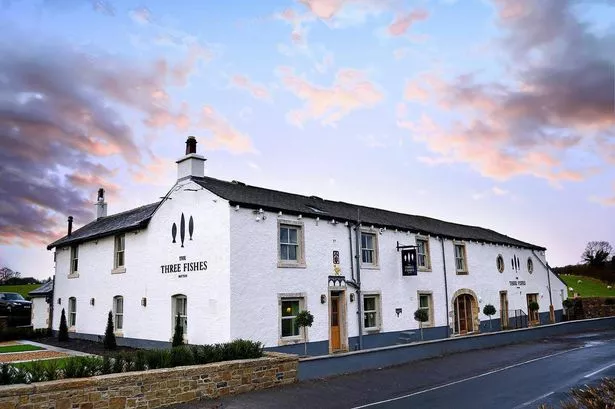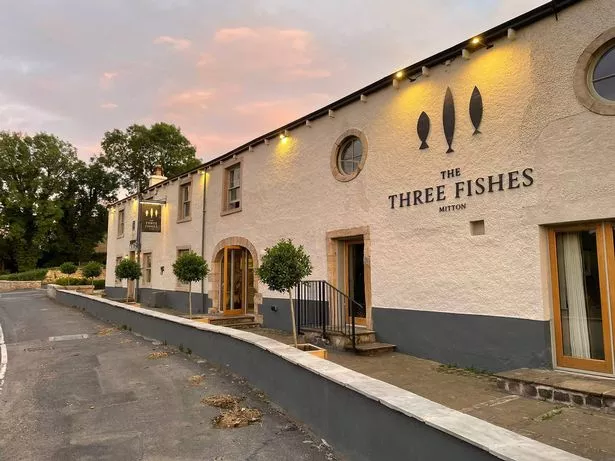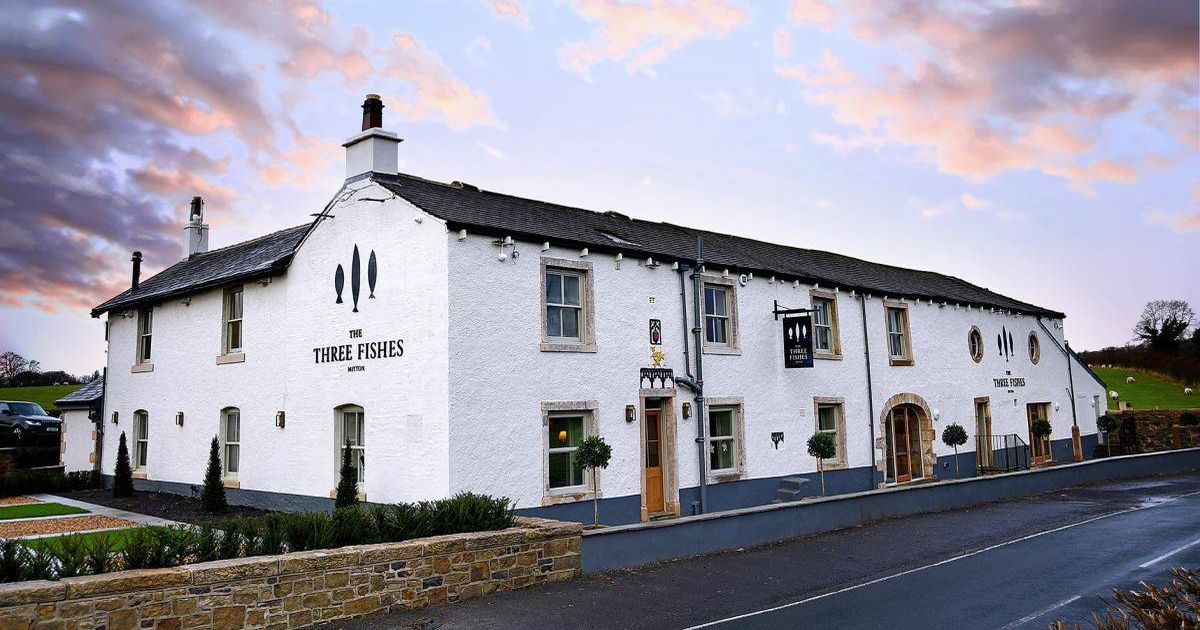The pub’s beer garden has plenty of spots to eat, drink and take in the stunning scenery
12:43, 12 Apr 2025Updated 12:43, 12 Apr 2025
 The Three Fishes pub restaurant(Image: The Three Fishes)
The Three Fishes pub restaurant(Image: The Three Fishes)
The Ribble Valley, dubbed the UK’s ‘gastropub valley’, is a foodie’s paradise within driving distance from Manchester. The fertile region boasts a “a seasonal food ethos” and is home to several Michelin-acclaimed restaurants.
Local producers like Mrs Kirkham’s cheese are recognised nationwide, cementing the area’s reputation as a gastronomic destination. Among the plethora of fantastic pubs, one beer garden stands out as “exquisite”, according to a celebrity chef.
The Telegraph recently asked renowned chefs to select their favourite pubs with hidden beer gardens. Atul Kochhar, owner and chef of Kanishka – a modern Indian restaurant in London’s Mayfair, chose The Three Fishes in the village of Mitton in the Ribble Valley.
Just over an hour’s drive from Manchester, the Ribble Valley offers “plenty to explore”, including “charming villages and market towns, rolling hills, green valleys and forest”. But it’s the area’s culinary offerings that truly set it apart.
As The Telegraph rightly notes, the Ribble Valley is a haven for food lovers. So much so, it has been crowned ‘the UK’s capital of gastropubs’, reports the Liverpool Echo.
Among these, The Three Fishes holds its own, offering yet another compelling reason to visit this delightful region.
The Three Fishes, run by chef patron Nigel Haworth, who has over 30 years of experience at the renowned Northcote restaurant and helped it earn a Michelin star, was described by Mr Kochhar as “a hub of culinary excellence”.
The pub restaurant is known for its two-acre organic garden, which provides a diverse range of vegetables, fruits, and herbs used in the restaurant.
Mr Kochhar said: “I have great admiration for his spontaneous approach to menus, which always showcases the freshest ingredients straight from the garden. He has ever-changing seasonal dishes – you never know what will be on the menu.”
As well as a five or seven course Farm To Fork tasting menus, the main Choice menu offers deer, cod, beef, and celeriac and Shittake lasagne, while there’s also a dedicated Plant-Based menu.
The pub’s exquisite beer garden has plenty of spots to eat, drink and take in the Ribble Valley scenery.
An area of outstanding natural beauty, Ribble Valley is well-known for its scenic countryside, delicious food and famous landmarks. Award-winning Clitheroe Castle is one of the best known landmarks in Ribble Valley, with an interactive museum and keep. The castle’s Keep is free to explore and you can also enjoy panoramic views of the Valley from the historic location.
Close-by to Clitheroe Castle is a former textiles mill, Holmes Mill. Established in 1823, Holmes Mill has been brought back to life and developed into a leisure venue, with its own beer hall, food hall and hotel. The venue retains a number of original features to keep the Victorian Industrial theme going, such as a large mill engine located in the ‘engine room’.
 The Three Fishes at Mitton(Image: LancsLive)
The Three Fishes at Mitton(Image: LancsLive)
The 14th Century Whalley Abbey is another famous visitor attraction, set in beautiful gardens and lush woodland beside the River Calder. Just eight miles from Whalley Abbey sits the remains of a Cistercian Abbey in Sawley, founded in 1148 and located on the banks of the River Ribble.
Located on the North bank of the River Ribble is Lancashire’s only specialist Roman museum, in the picturesque Roman village of Ribchester. The museum was built above the remains of the headquarters building of the Roman fort and opened up to the public, back in 1914. Each year, the museum holds an annual Roman re-enactment, where visitors can come along and watch exciting and realistic demonstrations, based on the everyday and military life of the Romans.
Dominating the skyline of the rural and picturesque landscape is Pendle Hill, which is renowned for its connection with the trials of the 17th century Pendle witches, which took place in 1612, as well as for the visitation of George Fox, who had a vision of a “great people to be gathered” waiting for him.
Join the Manchester Evening News WhatsApp group HERE
